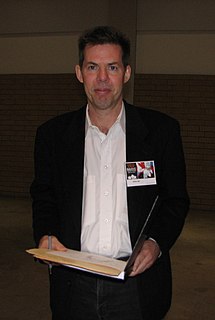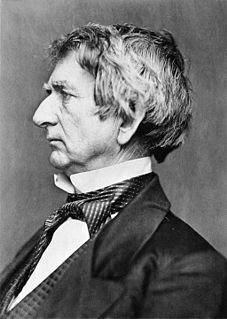A Quote by Daniel Dennett
Postmodernism, the school of 'thought' that proclaimed 'There are no truths, only interpretations' has largely played itself out in absurdity, but it has left behind a generation of academics in the humanities disabled by their distrust of the very idea of truth and their disrespect for evidence, settling for 'conversations' in which nobody is wrong and nothing can be confirmed, only asserted with whatever style you can muster.
Related Quotes
I destroy because for me everything that proceeds from reason is untrustworthy. I believe only in the evidence of what stirs my marrow, not in the evidence of what addresses itself to my reason. I have found levels in the realm of the nerve. I now feel capable of evaluating the evidence. There is for me an evidence in the realm of pure flesh which has nothing to do with the evidence of reason. The eternal conflict between reason and the heart is decided in my very flesh, but in my flesh irrigated by nerves.
Mind is a duality; it is always split. There is no single point on which the mind agrees in totality. Half of the mind will agree and half of the mind will disagree, and whatever you choose, you are choosing only the half. The remaining half is going to take revenge. The unchosen part, the left over, will wait for its chance to show you that whatever you have chosen is wrong. But it does not matter which part you choose. Choice itself is wrong.
What can we writers learn from lizards, lift from birds? In quickness is truth. The faster you blurt, the more swiftly you write, the more honest you are. In hesitation is thought. In delay comes the effort for a style, instead of leaping upon truth which is the only style worth deadfalling or tiger-trapping.
[T]he visibility of styles is itself a product of historical consciousness. ... The very notion of "style" needs to be approached historically. Awareness of style as a problematic and isolable element in a work of art has emerged in the audience for art only at certain historical moments - as a front behind which other issues, ultimately ethical and political, are being debated.
There are several kinds of truths, and it is customary to place in the first order mathematical truths, which are, however, only truths of definition. These definitions rest upon simple, but abstract, suppositions, and all truths in this category are only constructed, but abstract, consequences of these definitions ... Physical truths, to the contrary, are in no way arbitrary, and do not depend on us.
Every time that a man who is not an absolute fool presents you with a
question he considers very problematic after giving it careful thought,
distrust those quick answers that come to the mind of someone who has
considered it only briefly or not at all. These answers are usually
simplistic views lacking in consistency, which explain nothing, or which do
not bear examination.
Five Truths
about
Fear Truth
1. The fear
will never
go away as
long as I continue
to grow. Truth 2. The only way to get rid of the fear of doing something is to go out and do it. Truth 3. The only way to feel better about myself is to go out… and do it. Truth 4. Not only am I going to experience fear whenever I’m on unfamiliar territory, but so is everyone else. Truth 5. Pushing through fear is less frightening than living with the underlying fear that comes from a feeling of helplessness.
What you have felt and thought will by itself invent a new style, so that when people talk about style they are always a little astonished at the newness of it, because they think that it is only style that they are talking about, when what they are talking about is the attempt to express a new idea with such force that it will have the originality of the thought.It is an awfully lonesome business, and, as you know, I never wanted you to go into it, but if you are going into it at all, I want you to go into it knowing the sort of things that took me years to learn.
"The Universe repeats itself, with the possible exception of history." Of all earthly studies history is the only one that does not repeat itself. ... Astronomy repeats itself; botany repeats itself; trigonometry repeats itself; mechanics repeats itself; compound long division repeats itself. Every sum if worked out in the same way at any time will bring out the same answer. ... A great many moderns say that history is a science; if so it occupies a solitary and splendid elevation among the sciences; it is the only science the conclusions of which are always wrong.








































